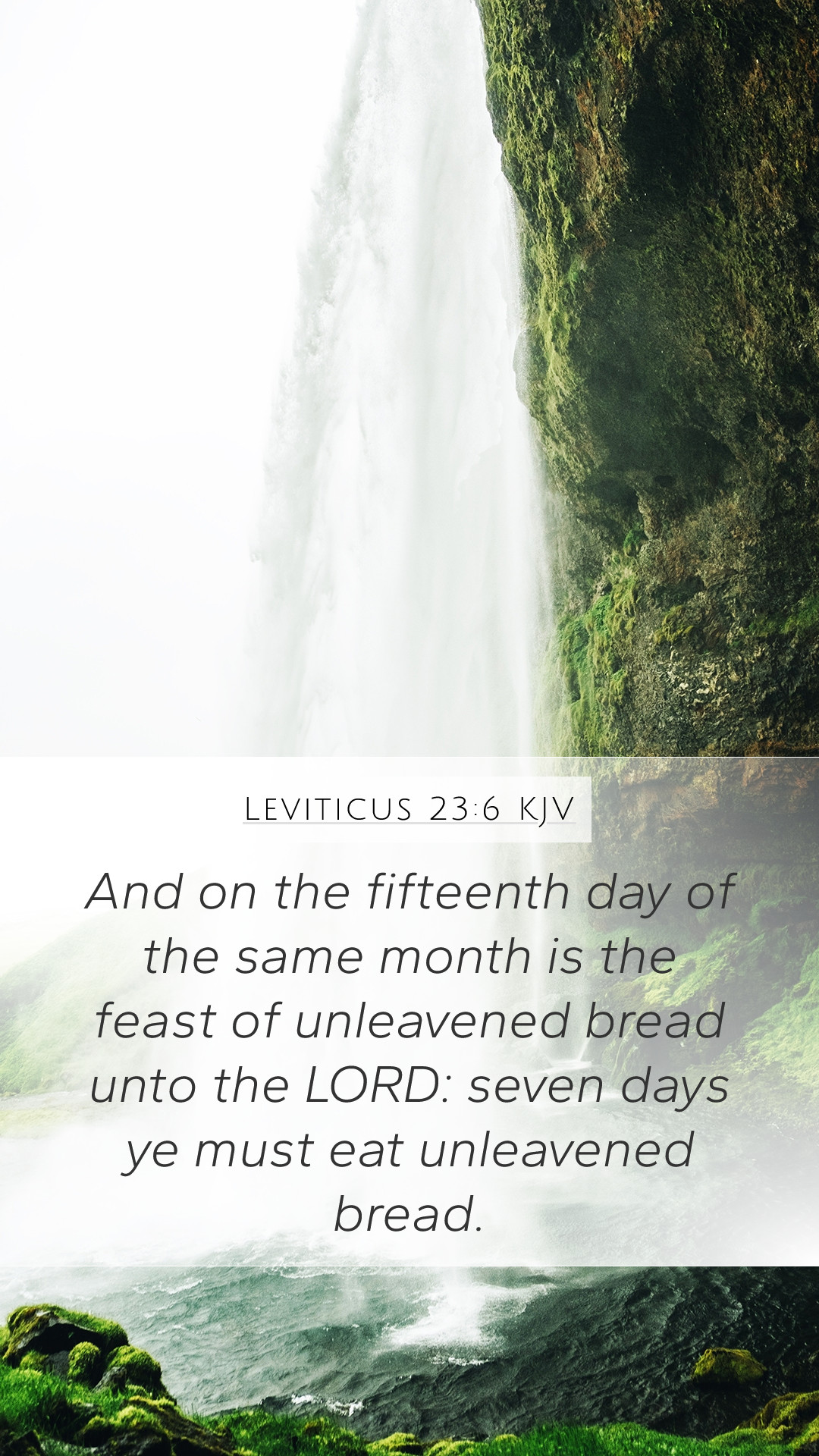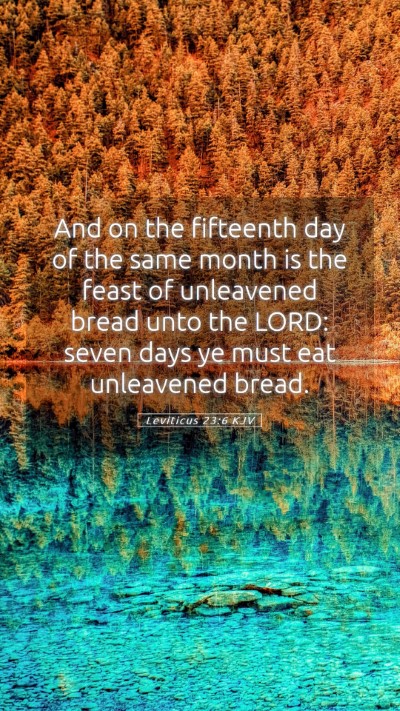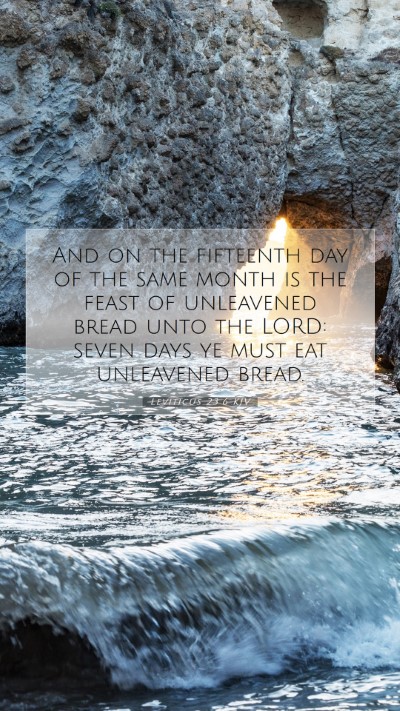Understanding Leviticus 23:6 – A Comprehensive Commentary
Leviticus 23:6 states, “And on the fifteenth day of the same month is the feast of unleavened bread unto the LORD: seven days ye must eat unleavened bread.” This verse holds significant meaning within the context of the Jewish festival calendar and provides valuable insights into biblical traditions and teachings.
Overview of the Feast of Unleavened Bread
This feast, celebrated in conjunction with the Passover, emphasizes the importance of purity and redemption. The consumption of unleavened bread symbolizes the haste with which the Israelites fled Egypt, leaving behind any leavened bread, which represents sin and corruption.
Key Themes and Insights
-
Purity and Separation:
Leaven in the Bible often symbolizes sin. By consuming unleavened bread, the Israelites were reminded to keep themselves separate from sin and to live in obedience to God’s commandments.
-
Remembrance of Deliverance:
This feast serves as a memorial of God’s deliverance of the Israelites from slavery in Egypt, encouraging them to remember the past while looking forward to the promised future.
-
Obedience to God’s Commandments:
The command to eat unleavened bread for seven days illustrates the need for consistent obedience in a believer's life, highlighting the connection between faith and action.
Commentary Insights
Matthew Henry’s Commentary
Matthew Henry emphasizes that the feast is both a remembrance and a call to holiness. He suggests that the absence of leaven is a physical representation of the spiritual need to avoid corruption and sin in our lives.
Albert Barnes’ Commentary
Albert Barnes notes that the seven days of feasting on unleavened bread symbolize a complete cycle of purification. It reflects a total commitment to God by removing all traces of leaven (sin) from their lives during this time.
Adam Clarke’s Commentary
Adam Clarke expands on the notion that this feast was not merely a ritual but a deep spiritual significance to the nation of Israel, showing a covenant relationship with God and emphasizing continued dependence on Him for sustenance.
Cross References
- Exodus 12:15: Discusses the requirement to eat unleavened bread for seven days.
- Exodus 34:18: Please reference the Feast of Unleavened Bread and its observance.
- 1 Corinthians 5:7-8: Reflects the New Testament application of the Feast, tying it to Christ as our Passover lamb.
Applying Leviticus 23:6 to Daily Life
This passage invites believers to consider how they live their lives in relation to God’s holiness. The practice of removing leaven can be mirrored in personal life choices and spiritual disciplines to foster a closer relationship with God.
Understanding for Bible Study Groups
As you explore Leviticus 23:6 in Bible study groups, focus on discussions around the symbolism of leaven, the significance of remembrance rituals, and how these themes apply to modern faith practices.
Conclusion
Leviticus 23:6 is a rich verse that provides a deep well of biblical exegesis, meaningful insights for personal growth, and foundational truths for community study. Understanding this verse through various commentaries enhances our appreciation of the Scriptures and fosters a more profound commitment to living out our faith in obedience and holiness.


